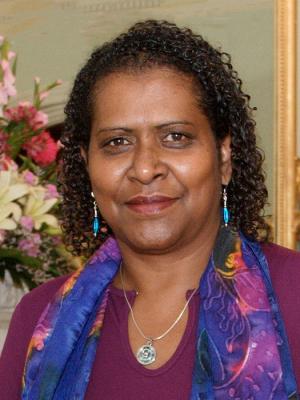“Education is the key. Education pulled me out of poverty, education gave me the drive to carry on. It gave me the wings to fly.”
Dr Noritta Morseu-Diop has worked extensively in the grassroots Aboriginal and Torres Strait Islander communities throughout Queensland.
Hailing from Tamwoy Town, Thursday Island, North Queensland, she graduated from The University of Queensland (UQ) with a Bachelor of Social Work and later a Doctor of Philosophy, making her the first Torres Strait Islander to graduate from UQ with a PhD. She was also the first Indigenous Australian to graduate with a PhD from the School of Social Work at UQ.
Having lived in Brisbane for over 30 years, her areas of work include grief and loss counselling, support and rehabilitation for incarcerated persons, cross-cultural education, and advocacy for Indigenous health, human rights, and social justice.
Morseu-Diop has specialised in understanding the experiences of incarcerated Indigenous people, a topic she examined in depth through her PhD thesis: Healing in Justice: An International Study of Indigenous Peoples’ Custodial Experiences of Prison Rehabilitation Programs and the Impact on their Journey from Prison to Community. This research has contributed to understanding the impacts of incarceration and has helped to develop Indigenous research methods in Australia, and was recently turned into a book: Healing in Justice: Giving a Voice to the Silent and Forgotten People.
She is the co-founder and current Chairperson of Gallang Place Aboriginal and Torres Strait Islander Counselling Services, and the founder and current Managing Director of Malu Mai Wellness Consultancy. She is a Senior Lecturer at the Australian College of Applied Psychology in the School of Social Work.
Her advocacy for social justice has taken her around the world, where she has presented at conferences and engaged with local and global Indigenous communities. She was awarded an Australian Federation of University Women Fellowship (2006) and a Winston Churchill Fellowship (2011) in support of this work.
She continues to promote the importance of sharing Indigenous knowledge through her volunteer facilitation of the annual World First Nations Traditional Knowledge Conferences.

